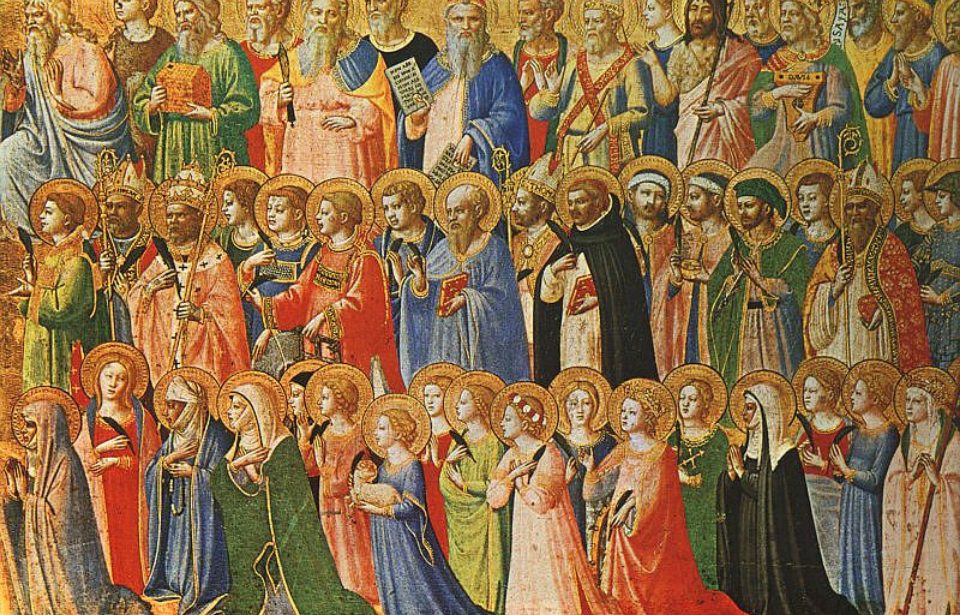The Catholic Church has many saints, each with their own remit. Some receive prayers for bodily ailments, while others help those who are in spiritual need. Below are some of the patron saints that have been given somewhat peculiar or unusual patronages over the centuries, from blood banks and motorcycles to murderers and lost causes.
Patron Saints for parts of the body
In a time before advanced medicine, people would often pray to a particular saint to cure them of a bodily complaint. Various diseases or parts of the body had a specific saint allocated to them.
Saint Servatius
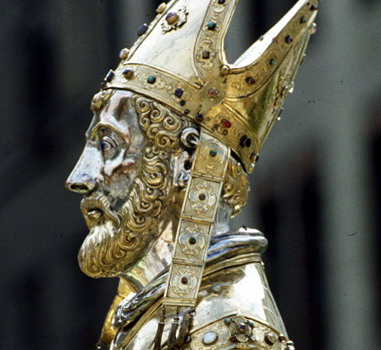
Servatius was a 4th-century Armenian priest who died of a leg wound in Maastricht in the Netherlands. Not only was he made patron saint of the city of Maastricht, but the manner of his death meant that he’s also the patron saint for foot and leg disorders as well as rheumatism.
Saint Januarius
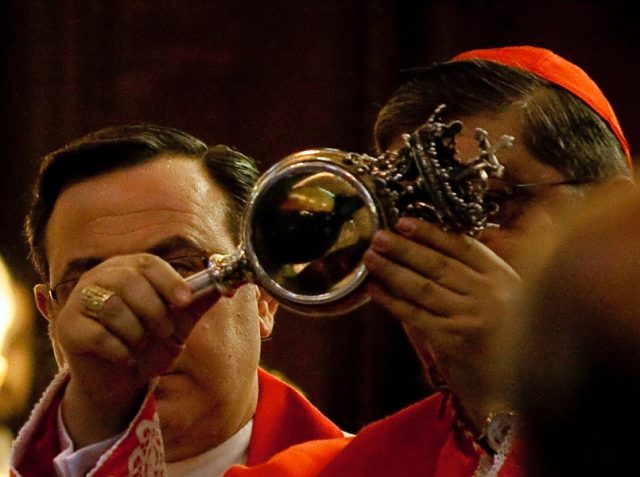
If you’ve got an upcoming blood transfusion, then you’ll need the patron saint of blood banks. Januarius was a Bishop of Naples in the 3rd century. While visiting a fellow Christian in prison, he was arrested. He was supposed to be fed to wild beasts, but the authorities were worried about public disturbances, so he was beheaded instead (although some legends state that he was thrown to the beasts, but they refused to eat him).
At the time of his death, a woman called Eusebia saved a vial of his blood, which went on to become a relic. The blood is said to liquify on three days of the year: the Saturday before the first Sunday in May, September 19, and December 16. His feast day is on September 19.
The vials are hermetically sealed, and the Catholic Church has never permitted the contents to be examined in case doing so irreparably damages the blood.
Saint Erasmus of Formia
The particularly gruesome and prolonged manner of Erasmus’s death accounts for why he is now the patron saint of stomach ailments, colic, and appendicitis.
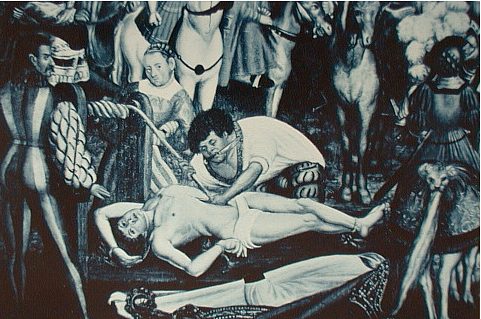
Erasmus was Bishop of Formia in Italy. When imprisoned for a second time, Erasmus’ devotion so infuriated Emperor Maximian that he had him whipped and beaten then placed in a barrel full of spikes. The barrel was set alight and rolled down a hill. When it turned out that Erasmus had actually survived, his stomach was cut open and his intestines wound around a winch.
However bad your stomach ache might be, it’s not as bad as that of St Erasmus, but he’s the guy you need to pray to for relief.
Saint Polycarp of Smyrna
Becoming the patron saint against dysentery and earache didn’t have anything to do with Polycarp’s death. It was because, during his life as a bishop of Smyrna, he worked with people afflicted by such conditions.
Saint Nicholas
It seems natural that the man held to be the inspiration for Santa Claus is also the patron saint of children. However, Saint Nicholas of Myra is also the patron saint of bankers, brewers, and prostitutes.
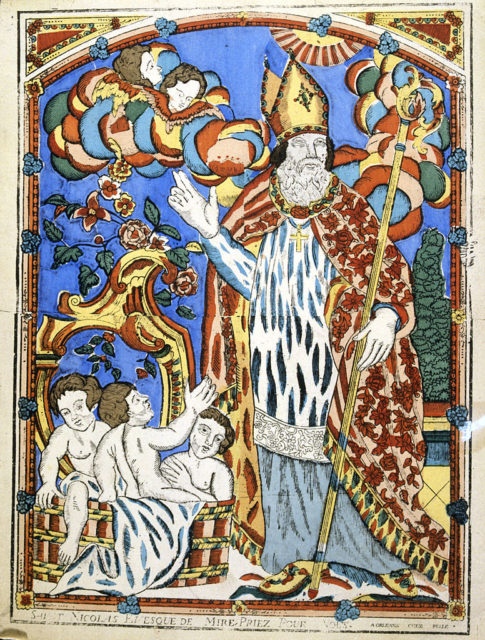
The act which made him famous as a gift-giver (providing a father dowry money for his three daughters) also made him the patron for prostitutes because his gift saved the women from such a trade.
After bringing back to life some children who had been killed and placed in a barrel by a wicked butcher to sell as ham, Nicholas was often depicted with a barrel at his feet, making people believe he was the patron saint of brewers as well.
Saint Vedast
If your child is a toddler and not old enough to believe in Santa Claus yet, then you might prefer to pray to St Vedast (also known as St Vaast) instead. This priest met a blind beggar on a bridge over the river Aisne and was inspired to pray for him.
When he blessed the beggar, the man’s sight returned. For this miracle, Vedast became the patron saint of those who have eye diseases, a role which was extended to include those children who are late learning to walk (possibly because of eye issues).
Some professions have their own patron saints
You might think your career is a little too modern to have a patron saint, but in some cases, you’d be wrong.
Saint Balthazar
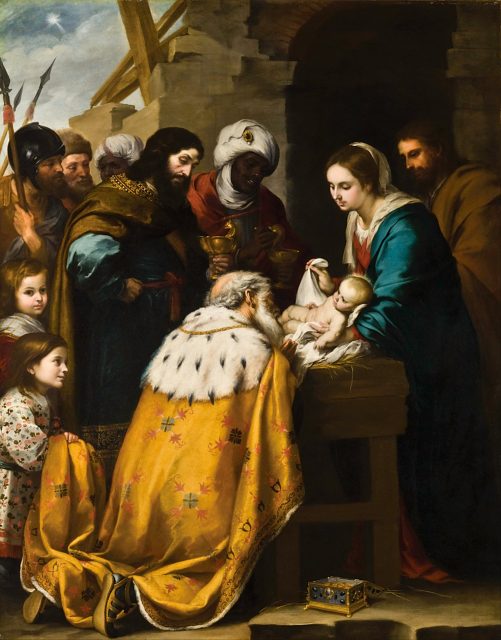
Balthazar was one of the three kings who visited Jesus in Bethlehem. It was mistakenly believed Balthazar came from Egypt, a place notorious for card sharps and sleight-of-hand merchants. As such, Saint Balthasar became the patron saint of playing card manufacturers as well as those who played cards.
Saint Bernardino of Siena
St Bernardino of Siena was a Franciscan missionary well-loved for his preaching in the 15th century. As such, he’s become the patron saint of advertising and PR.
Saint Genesius
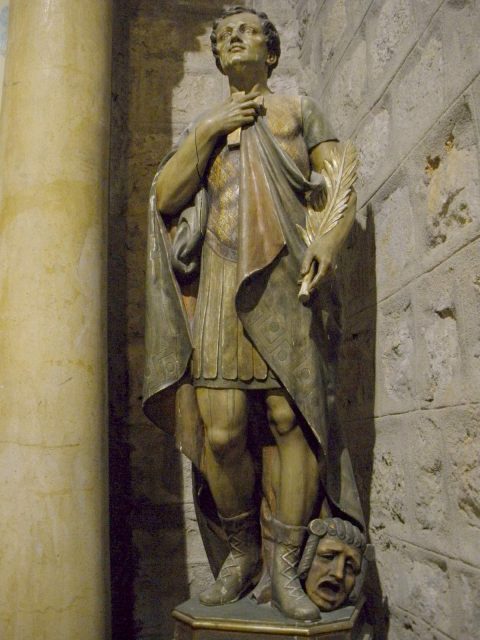
Those on stage have their own patron saint in the form of Saint Genesius of Rome. Genesius was an actor hired to perform in a play that ridiculed Christian baptism. But when he received the word of God during a production, he converted right there on stage. Emperor Diocletian was not impressed and had him killed.
With a feast day of August 25, his patronage extends to cover comedians, dancers, musicians, actors, clowns, and lawyers.
Saint Fiacre
Saint Fiacre was a Catholic priest and hermit who became the patron saint of gardeners due to the garden and vegetable patch by his hermitage. However, because he was particularly against women (banning them from his hermitage after one woman tried to suggest that his vegetable-growing miracles were witchcraft), he is also the patron said for those wishing to be cured of venereal diseases.
His reputation for healing hemorrhoids made him the patron saint of sufferers of those too, leading to hemorrhoids in the Middle Ages being called “Saint Fiacre’s figs.” Gross.
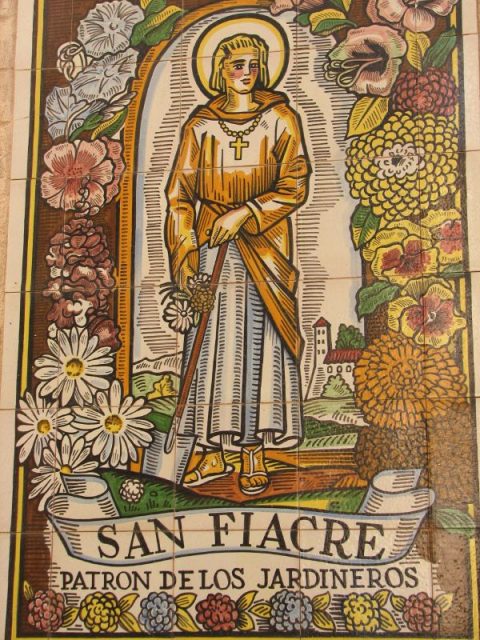
Saint Columbanus
If you ride a motorcycle to work every day, then you’ll want to keep in with Saint Columbanus. Although there weren’t any motorcycles in Europe during the 6th and 7th centuries, Saint Columbanus’s love of roaming made him the perfect saint for those on two wheels. He was suggested as a patron by John Oliver, an Anglican bishop and avid motorcyclist, around 2002.
Saint Lidwina
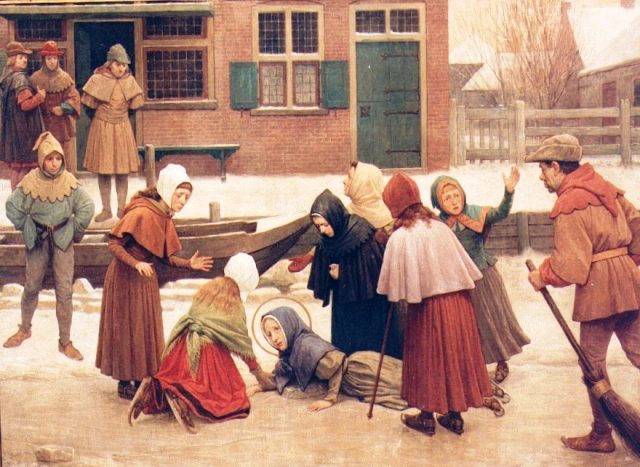
If you’re a professional athlete, then there might be a saint just for you. Saint Lidwina is the patron saint of ice-skaters. After a skating injury when she was 15 years old, she became progressively more disabled due to the injury and suspected multiple sclerosis, but she led a life of piety and was canonized. Saint Adjutor is considered to be the patron saint of swimmers.
Saint Giles – the patron saint of breastfeeding women
You’d think that a woman would be the patron saint of breastfeeding mothers, wouldn’t you? Well, it’s actually Saint Giles.

Giles lived in the south of France in the 7th century. He made his home in the forest near Nîmes, where he lived in solitude as a hermit. He ate a vegetarian diet but also ingested the milk of a female deer, who was his sole companion. This habit apparently made him the ideal person for breastfeeding mothers to pray to.
When the king and his hunting party tried to shoot the deer, Giles took the arrow in her place. The king was so impressed with his humility and lifestyle that he built a monastery in the valley, which was named Saint-Gilles-du-Gard. Giles went on to found an abbey there.
Saint Julian the Hospitaller
Committed a murder? Then it’s St. Julian you need. Poor Julian was cursed from birth to kill his parents. When he learned of his fate, he instantly left, walking for 50 days straight. When he finally stopped in Galicia, he married a wealthy widow and became quite prosperous. But his parents never stopped looking for him, and they found his home while he was away.
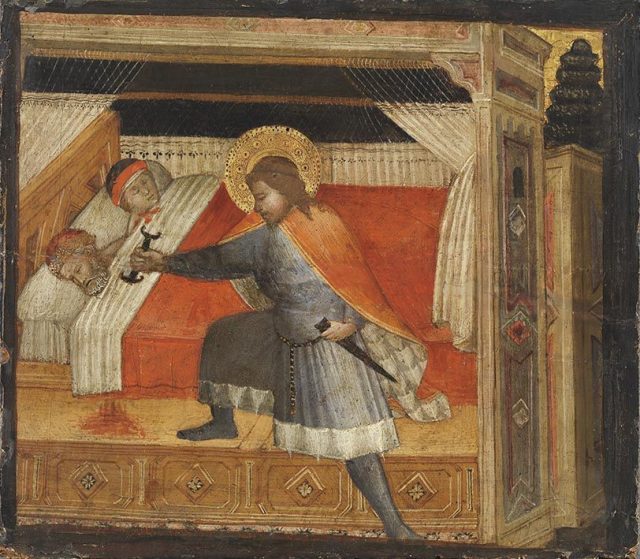
His delighted wife invited them in and even offered up her and her husband’s bed for their comfort before she went to church. Upon his return, Julian found a couple in his bed and assumed it was his wife cheating on him, so he killed them both. When his wife returned and revealed the mistake, the two of them agreed to live a life of piety to try and atone.
They set up a hospice near a dangerous river crossing, and Julian would ferry people back and forth. One night, he offered a leper his own bed. The leper turned into an angel and told Julian that his penance was accepted by God. His good works resulted in him becoming the patron saint of innkeepers, boatmen, pilgrims, and murderers.
Saint Medardus of Picardy – bring me sunshine
If you need to ensure you have good weather for a wedding or family BBQ then you should offer your prayers to Saint Medardus, who allegedly was sheltered from a storm by an eagle that hovered above him.
His feast day falls on June 8, and legend has it that whatever the weather is on that day, it’ll remain the same for the next 40 days. Because he is often shown laughing with his mouth wide open, he has become the patron saint to invoke against toothache as well.
Saint Barbara
For a special celebration, you might want to throw in a prayer or two to Saint Barbara, who is the patron saint of fireworks. After her father tortured and killed her because of her Christianity, he was struck by lightning on the way home.

Because of her link with sudden death and explosions, she became the patron saint for those working with explosives, such as armorers, artillerymen, and military engineers. It also made her the perfect saint for fireworks when they eventually became popular.
Patron saints for marriage and dating
If you’re struggling to get a date, you could try Saint Drogo, who is the patron saint of unattractive people. After contracting a disfiguring ailment when on a pilgrimage, a special cell was built for him adjacent to the church where he could ensure people weren’t frightened by the sight of him. He received the Eucharist and food (barley and water) through a small window and remained in his cell for 40 years.
During his time as a shepherd, it was said that he could be in two places at once, such as watching the sheep and going to Mass.
If you’re already married but struggling with marital issues, you could try Saint Gummarus, who’s the patron saint of difficult marriages after he separated from his shrewish wife and became a hermit instead. He went on to found an abbey at Lier.
For everything else, There’s Saint Rita
Finally, if there’s anything you feel that is simply out of your league, then it’s to Saint Rita, patron saint of impossible causes, that you need to direct your prayers.
More from us: Founder Of European Union On The Road To Sainthood
Before she joined the sisters of Saint Mary Magdalene in Cascia, she was a dutiful wife to an abusive husband, making her also the patron saint of those with marriage difficulties and widows.
